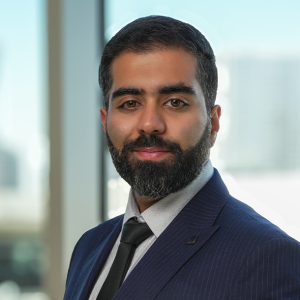Abu Dhabi’s National Rehabilitation Centre (NRC) has issued a strong warning about the risks of narcotics. Experts at the centre say narcotics can cause instant addiction in some cases, especially when personal, social, and psychological risk factors combine. They stress that even limited exposure to narcotics may lead to rapid dependency, making early awareness and intervention vital.
This warning is not just for those who experiment with drugs. It is directed at families, communities, and policymakers who must recognize the dangers and take preventive action.
What is Instant Addiction from Narcotics?
The term “instant addiction” may sound dramatic, but medical professionals explain that under certain conditions, addiction can develop much faster than most people expect. In some cases, strong cravings, dependency, and loss of control can appear soon after initial use.

While it does not always mean someone is fully addicted after a single use, experts emphasize that the risk of rapid progression is real. This is especially true for vulnerable individuals who face challenges such as stress, trauma, peer influence, or lack of family support.
Why Abu Dhabi’s Warning Matters

Youth at High Risk
Teenagers and young adults are more likely to experiment with narcotics. Curiosity, peer pressure, and the desire to fit in can lead them to try substances without understanding the consequences. The NRC points out that this group is particularly vulnerable to fast-developing addiction.

Family Neglect and Weak Support Systems
When young people feel ignored, unsupported, or harshly treated at home, they may turn to drugs as an escape. Lack of supervision, absence of open communication, or emotional neglect are key risk factors that can push someone towards instant addiction.
Environmental and Social Pressures
Outside the home, peer groups and social circles often play a powerful role. False beliefs, such as thinking drugs will make someone feel stronger, more confident, or accepted, increase the temptation. Boredom and lack of positive activities are additional influences that can accelerate drug use.
Overlooked Early Signs
Many people wrongly assume that trying narcotics once or twice is harmless. However, early signs of addiction—such as mood swings, declining school performance, or withdrawal from family—are often overlooked. Experts warn that these small changes may already signal the beginning of dependency.
How Addiction Develops
Addiction often follows a series of stages. Understanding these stages can help families and communities recognize the danger before it escalates.
- Curiosity and Experimentation: A person tries narcotics out of curiosity, peer influence, or stress.
- Regular Use: Use becomes more frequent, with the person relying on the drug to feel better or cope with life.
- Risky or Problematic Use: Negative impacts appear, such as lying, missing responsibilities, or withdrawing from usual activities.
- Dependence: The person develops physical and psychological reliance. Stopping use triggers withdrawal symptoms.
- Full Addiction: The addiction takes over, leading to health issues, broken relationships, and potential overdose.
While this process can take time, some individuals move through these stages much more quickly, which is why the term “instant addiction” is used.
Signs to Watch Out For
Early detection is critical. Families, teachers, and friends should watch for changes that may indicate the start of addiction.
- Sudden mood changes such as irritability, anger, or sadness
- Withdrawing from friends and family
- Declining grades or poor work performance
- Physical changes such as weight loss, red eyes, or frequent tiredness
- Trouble sleeping or changes in appetite
- Unexplained need for money or disappearance of valuables
- Secretive behavior or evidence of drug paraphernalia
Recognizing these red flags and acting quickly can prevent the situation from worsening.
What Families and Communities Can Do

Strengthen Family Communication
Strong family bonds are one of the best defenses against addiction. Parents and guardians should talk regularly with children, listen to their concerns, and provide emotional support. Showing love, care, and understanding makes young people less likely to seek escape in harmful substances.
Educate and Raise Awareness
Schools, community groups, and religious centers should run regular awareness programs about the risks of narcotics. Misconceptions, such as the idea that “everyone does it” or that drugs are easy to quit, must be corrected. Knowledge is one of the most powerful tools in prevention.
Provide Positive Alternatives
Youth who have hobbies, sports, creative outlets, or community activities are less likely to experiment with narcotics. Offering positive alternatives helps channel their energy and curiosity into healthier directions.
Encourage Early Intervention
If a person shows signs of addiction, families should not wait until the situation becomes critical. Seeking help from doctors, counselors, or rehabilitation centers early can make recovery much easier and faster.
Supportive Laws and Policies
In Abu Dhabi, laws allow people struggling with addiction to seek treatment without fear of punishment if they do so voluntarily. This approach treats addiction as a health issue, reducing stigma and encouraging more people to come forward for help.
Challenges in Tackling Addiction
Despite efforts, many challenges remain.
- Misunderstanding the concept of instant addiction: Some people believe one use always equals addiction. While this is not medically exact, it is true that some people develop strong dependency very quickly.
- Stigma and fear: Many avoid seeking help because they fear judgment or legal consequences.
- Lack of mental health awareness: Addiction is often linked to stress, anxiety, and trauma. Without addressing mental health, treatment becomes harder.
- Limited awareness in remote areas: Not everyone has access to accurate information or support systems.
Abu Dhabi’s Initiatives Against Addiction
Abu Dhabi has launched several initiatives to fight addiction. The Integrated Strategy to Combat Addiction focuses on prevention, education, reducing drug supply, and providing accessible treatment. Rehabilitation centers such as the NRC also run community outreach programs to educate families and schools.
Importantly, UAE law encourages rehabilitation over punishment, creating a safer path for those who voluntarily seek help. Families and friends can also refer individuals to rehab centers if they notice warning signs.
Why Early Action Matters
Instant addiction from narcotics can lead to severe consequences if ignored. The risks include physical health problems, mental health disorders, damage to relationships, failure in education or career, and even death from overdose.
Early action—such as recognizing warning signs, encouraging treatment, and offering support—can save lives and prevent long-term harm.
Stories of Recovery and Hope
The NRC often highlights real-life recovery stories to inspire hope. One example is a man in his thirties who battled years of addiction. With the help of rehab programs, counseling, and family support, he was able to rebuild his life. Today, he is employed, married, and helping others on their journey to recovery.
These stories show that recovery is possible and that seeking help early can change the outcome. Addiction is not the end of the road; with proper care, individuals can return to a healthy, productive life.
Conclusion
Instant addiction from narcotics is a real and pressing danger. It highlights how quickly dependence can develop when personal, social, and psychological risks combine.
The warning from Abu Dhabi’s rehab center is clear: families, schools, and communities must take this seriously. By strengthening family bonds, raising awareness, offering positive alternatives, and encouraging early treatment, society can reduce the risk of addiction and save countless lives.
Do follow UAE Stories on Instagram
Read Next – English Teacher Job in Dubai – Opportunities, Salary, and Guide












